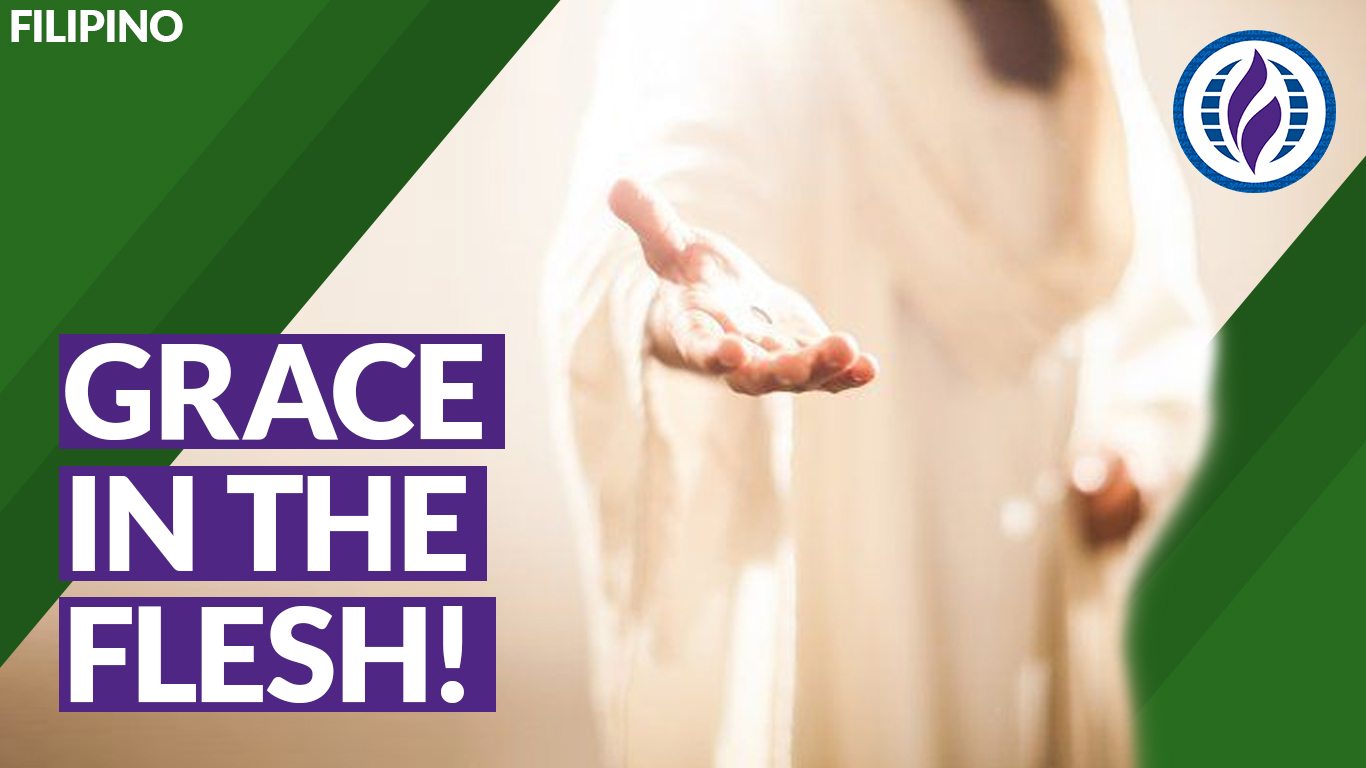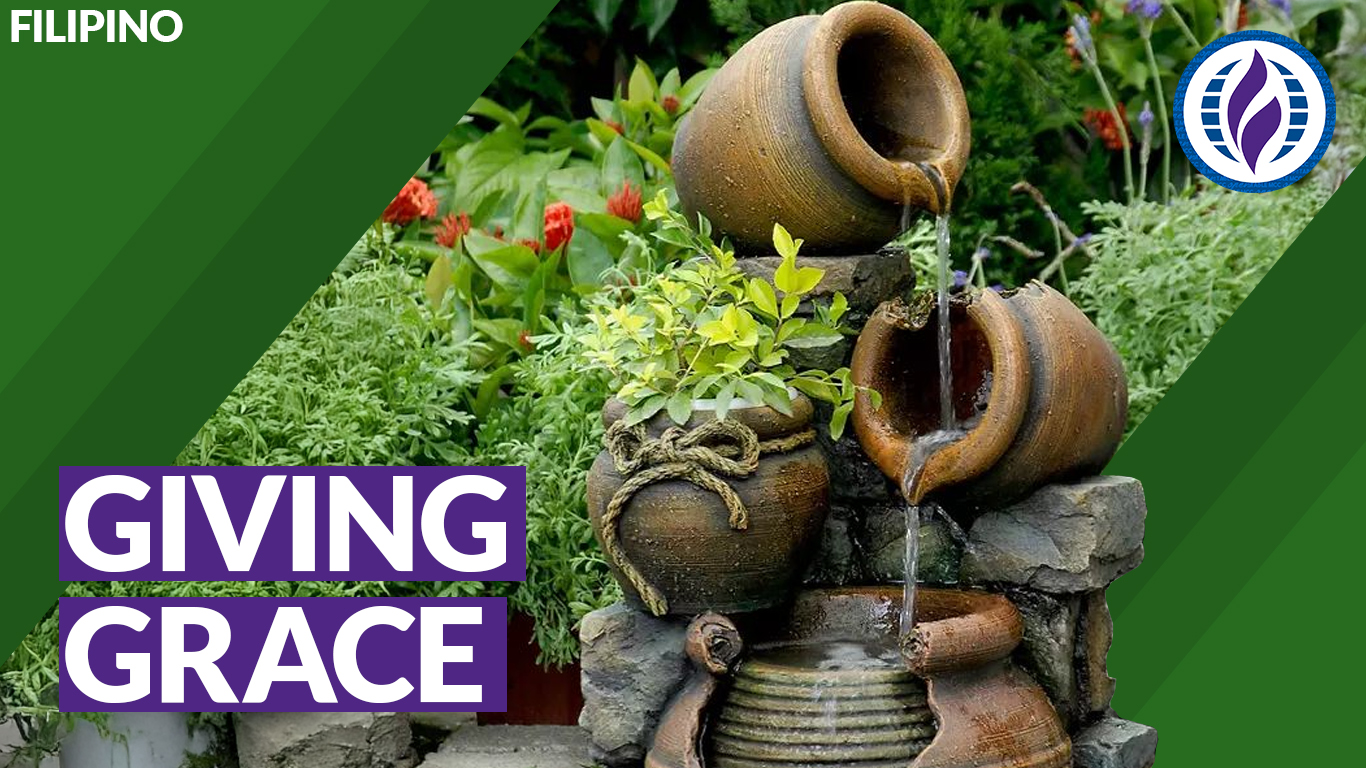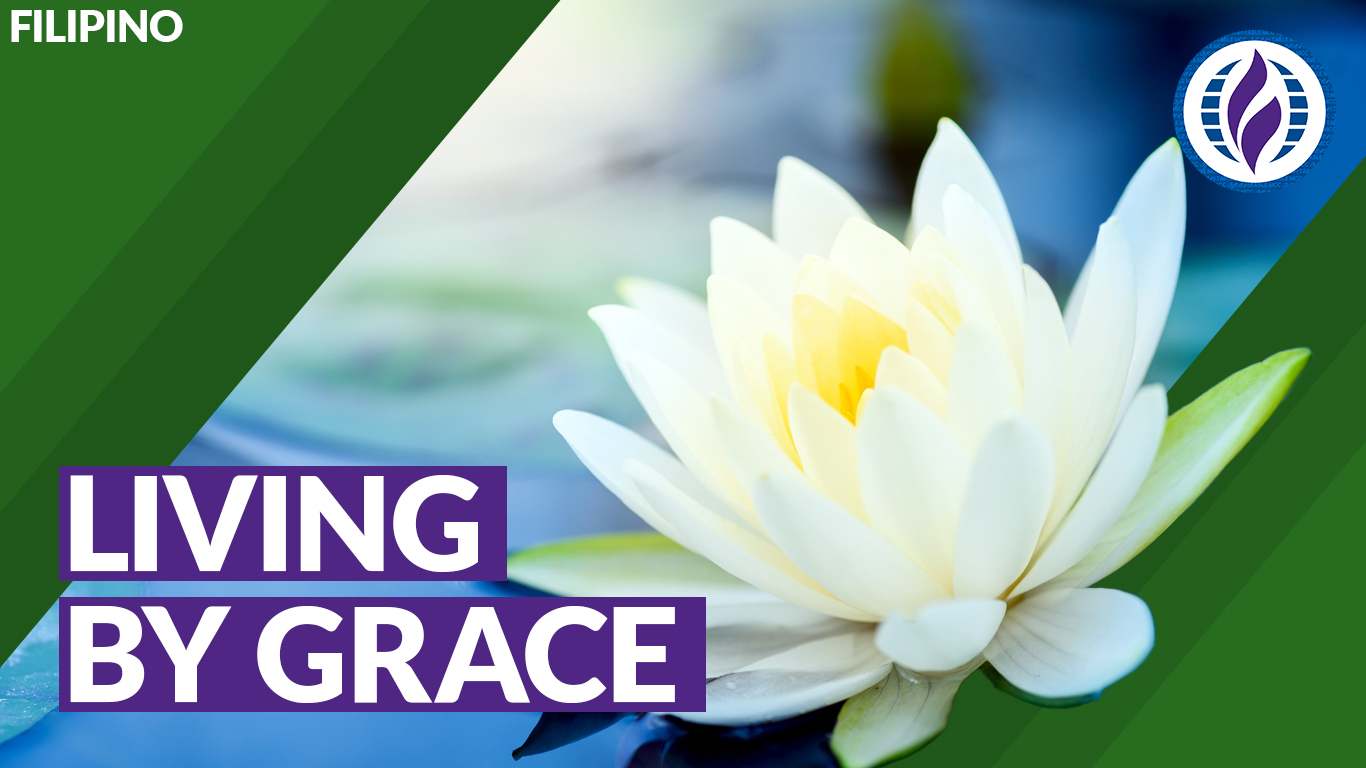Owe no one anything, except to love one another, for the one who loves another has fulfilled the law. The commandments, “You shall not commit adultery; you shall not murder; you shall not steal; you shall not covet,” and any other commandment, are summed up in this word, “You shall love your neighbor as yourself.” Love does no wrong to a neighbor; therefore, love is the fulfilling of the law.
Romans 13:8-10 NRSVUE
When the Pharisees heard that he had silenced the Sadducees, they gathered together, and one of them, an expert in the law, asked him a question to test him. “Teacher, which commandment in the law is the greatest?” He said to him, “ ‘You shall love the Lord your God with all your heart and with all your soul and with all your mind.’ This is the greatest and first commandment. And a second is like it: ‘You shall love your neighbor as yourself.’ On these two commandments hang all the Law and the Prophets.”
Matthew 22:34-40 NRSVUE
Is love and by extension grace really UNCONDITIONAL? What do you think? Perhaps we have to understand what do we really mean by unconditional and where it applies?
Today, I will be preaching and talking more about love and from love extrapolate – extend the application – towards our topic and theme of grace. Afterall grace comes from love and we define grace as loving kindness. Kindness that is loving. Kindness motivated by and comes from love.
What do we really mean to say and we say unconditional love and by extent, unconditional grace? While it is soooo good vibes to hear this truth that has become a cliché and a ms. Universe meme, “Unconditional love,” what does it really mean? On the contrary, why is there so much harm and unloving actions especially in places and people who claim to preach “unconditional love”? The problem kasi and this is the nature of cliché’s, a universal truth simplified and told over and over again, actually loses its inherent wisdom and power. Sobrang gamit na gamit yung “unconditional love” and “grace” by almost anyone and everyone pero hindi naman siya nauunawaan at naipapaliwanag logically and contextually. While there is universality to “unconditional love”, what is universal will always be nuanced in the local and contextual. So what do we mean by unconditional? Let me offer for this Sunday A wisdom about it. Unconditional means that every person born is and should be loved, valued, respected, and cared for with whatever physical, psychological, and medical conditions that they have which they cannot change OR conditions and situations that can changed, but do not have to, in order to be loved, cared for, and valued. Unconditional love means that your race and ethnicity has nothing to do with how other people or society should treat you.
The measure of love, grace, respect, welcome, access, protection, care, and many other things necessary for life should not be conditional base on race and ethnicity, sexuality and gender, It should not be based on color of skin, eyes, or color of hair; it should not be based on blood type or other physical conditions, neurodivergence, other attributes including disabilities or physical and mental limitations. You are loved, valued, respected, protected, and cared for simply because you are a living human person with inherent dignity and inalienable rights. You do not have to change because you most likely cannot change these physical conditions. If a church, religious leader, or politician tells you that you have to be of a certain race or sexuality to be loved, to have equal rights, and to be protected of the law, then that is not unconditional love and that certainly is a form of unjust discrimination.
The second thing is about things you might be able to change but doesn’t necessarily have to, to be loved, respected, and cared for. For example your nationality and citizenship, your religion or non-religion. The sports you like to watch or play. Your hobby like cosplaying and dressing up. Your tattoos, piercings, and the way you express yourself through clothing. These things generally should not be a basis or measure of whether you are loved, respected, cared for, recognized, given to access to social services, and given opportunities. Hindi mo necessarily kailangan magpalit ng nationality or religion mo, or ano mang personal mong interest or hobby para tratuhin ka ng maayos at kilalanin ang iyong karapatan at dignidad bilang tao.
You are a human person born unique into this world – no one has been like you before and no one will be like you after you are gone. You are a miracle and a gift born out of creation and evolution and you are and should be loved, valued, respected, protected, and cared for regardless your distinct conditions, attributes, and even socio-cultural and socio-political particularities. This is what we mean when we say love and grace are unconditional.
While at the same time – love and grace are conditional. They are. And when I say conditional I mean that love and grace has their boundaries. And as our title indicate, they are their own boundaries. They are their own conditions. Huh? Ano pastor?
Love is its own condition. Grace is its own boundary.
Anything that is unloving is outside of love and therefore there is a boundary between what is loving and what is unloving. Pag-ibig mismo ang sarili nyang limitasyon o pagtatakda. Merong lubid na pumapagitan sa kung ano ang mapagmahal at ano ang HINDI mapagmahal.
Pag-ibig mismo ang hangganan. Love in itself is the boundary. Grace in itself is the same measure and standard. Truth is its own measure of things. Goodness is the line drawn on the sand. Love and grace define the boundaries, edges, conditions, and limitations.
This is exactly how I understand and will interpret what Paul says in his letter to the Romans when he says, “Love does no wrong to a neighbor; therefore, love is the fulfilling of the law.”
Let us all together again read Paul’s chika in the letter to the Romans:
Owe no one anything, except to love one another, for the one who loves another has fulfilled the law. The commandments, “You shall not commit adultery; you shall not murder; you shall not steal; you shall not covet,” and any other commandment, are summed up in this word, “You shall love your neighbor as yourself.” Love does no wrong to a neighbor; therefore, love is the fulfilling of the law.
The letters of Paul were not written nor were intended as doctrinal definitions. These were his theological reflections and admonitions in response to the different conflicts, issues, and problems of the 1st century Christian communities in different cosmopolitan cities of the Roman Empire. In this particular letter of Paul, he reminds the Christians in the imperial city of Rome how love should be understood and practiced.
Madali sabihin paulit-ulit ang salitang love or agape pero para kay Pablo meron itong konkretong depinisyon na nagtatakda ng limitasyon – Love does not harm, therefore love is the fulfilment of the law. Of any law. As a pharisee this is Paul’s interpretation that re-phrases what Jesus says in the gospel of Matthew – Love God, love neighbor as you love yourself – Every other law, commandment, and prophetic message are based on these two. Pero malinaw na ang ibig-sabihin ni Jesus at ni Paul, – na ang pag-ibig ay hindi nagpapahamak, mapanakit, mapang-abuso, at mapaniil. Love does not harm.
Condition is not based on your physiological conditions like SOGIESC or color of skin, and other social-cultural and socio-political attributes like nationality or religion. The conditionality of love is based on how you treat others. It is based on whether your behaviors and attitudes are harmful or loving. Ang condition ay kung paano ba ang ating pag-uugali, pakikitungo, at pakikipagkapwa.
Unconditional love would also ask us to love as we have been loved. Jesus says in John 13 and John 15, “Love one another. As I have loved you, you should love one another.” Love is its own standard. Love is its own condition. Grace is its own commandment and the boundary we are asked to live by.
Kung gusto natin ang unconditional love at ang free gift of grace for ourselves, we must be willing to also live by, practice, and give love and grace to others. Kung gusto natin ng pagmamahal kailangan nating magmahal. Kung gusto natin ng pagtanggap kailangan nating tumanggap. Kung humihingi tayo ng pang-unawa at pagpapatawad kailangan natin umunawa at magpatawad sa ibang tao at sitwasyon. Kung gusto natin ng safe space para sa ating sarili kailangan din nating umayos ng pag-uugali para ibigay ang safe space sa iba. Although don’t get me wrong and this might be some kind of intellectual gymnastics, while I say kung gusto mo ng pagmamahal kailangan mo magmahal, I did not mean to say na kaya ka magamahal kasi ineexpect mong mahalin ka pabalik. No. That’s not what I mean. Love is something that is freely given. Grace is something generously shared without expecting anything in return.
But it is equally true na kung gusto natin ng pag-ibig kailangan nating mabuhay na umiibig, umuunawa, at nagpapatawad.
In the same perspective, we say that love and redemptive grace should not be an excuse or justification for harmful behavior: May grace naman kasi so I will do whatever without considerqation. May unconditional love naman eh, ipipilit ko yung gusto ko kahit na hurtful sa iba. Unconditional love does not excuse harmful behavior. Pero paano yun, eh hindi naman tayo perpekto? Do I have to walk on eggshells or tiptoe on thin ice?
This is why we have grace and why grace proceeds from love. Love demanding love does not mean demanding perfection. Either wise it is not love if it requires perfection. After all the true test of love and grace are in those unloving moments we experience. Gulley and Mulholland in their book, If God is love, tells us, “Grace isn’t tested by our friends, but by our enemies.” Kinikilala naman ng pag-ibig at grasya ng Diyos na hindi tayo perpekto. Kaya nga merong grasya in the first place. Grace is redemptive and love is reconciling in many different situations and conditions. Kaya nga merong pagpapatawad at pang-unawa. But let us be clear, there is no space for ill-intended and harmful actions and behaviors. Love does not give space for harmful behavior even as it recognizes imperfection. The remedy of love for our imperfection is GRACE and GRACE is the process of accountability, transformation (repentance) and redemption. Authors Gulley and Mulholland in their book, If God is Love… tells us, “the perpetrator must accept punishment and repentance as the necessary cost of reconciliation.” GRACE is the other name for a accountability. Walang espasyo para sa mapanakit na pag-uugali at pagkilos pero merong espasyo para sa proseso para sa pagbabago – and that is case to case basis. Grace and forgiveness acknowledges each of our imperfection but what it offers is not a way out na parang walang nangyari. Grace offers a path acknowledging our imperfections, owning up to it, maturing us, and helping us to do better.
Here we make the distinction between someone who honestly made a mistake. Someone who have hurt or harmed you because of natural human dynamics of relationship… someone who at the height of anger said something terrible… versus someone who has sinister intentions who will even use concepts of goodness or grace to manipulate his way to get what he wants and to damage or abuse as many people as he can. While there is no one outside of God’s love and redeeming grace, there are people who will continually choose to do harm by abusing and twisting what is good, beautiful, and true – at marami sa mga yan ay mga charismatic religious leaders ng malalaking mga simbahan. Many others ay mga pulitiko from political dynasties. Bahala na si Lord sa kanila. While God’s grace is infinite, I am not. We are not and the same grace of God calls us to hold people accountable for the unloving actions and decisions they do especially for those who are in power. A call to justice in government, church, and society is grace holding those in power accountable and offering them a way to be redeemed.
In closing, unconditional love upholds diversity. Different conditions and situations are not the measure of love, value, and worth. While every human being is and should be loved and welcomed, not all behaviors are. Love is its own limitation. Grace is its own wall for anything unloving and ungracious. Grace is the medicine for our imperfections and less than good behaviors and actions. God’s gift of grace is the gentle yet firm process of accountability and redemption.
I end our preaching for this Sunday with a from the same book, If God is love by Philip Gulley and James Mulholland,
Human transformation comes when love casts out fear, assuring us we’ll never be disowned, abandoned, or destroyed. Only in the rich soil of unconditional love can we truly grow.
And may we grow within the unconditional boundaries of love and when we fall outside of it, may we be willing to hold on to the graces that reaches out for us to pull us back in. In the name of Jesus who pulls us back into love’s embrace. Amen.
Podcast: Play in new window | Download
Subscribe: Apple Podcasts | Spotify | RSS



